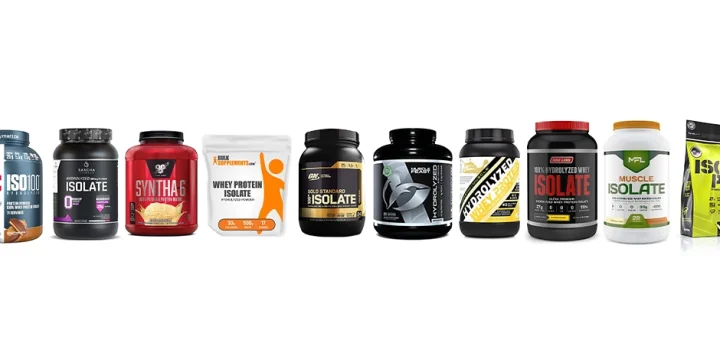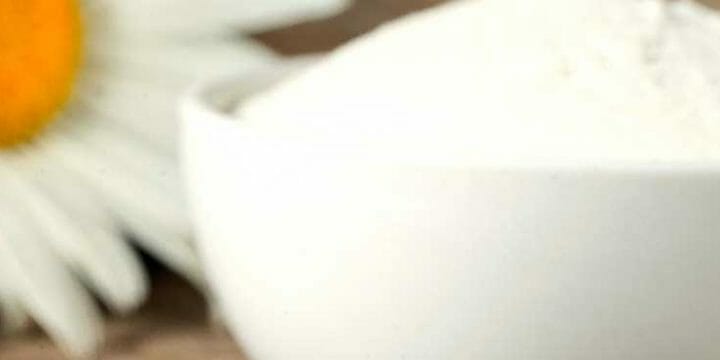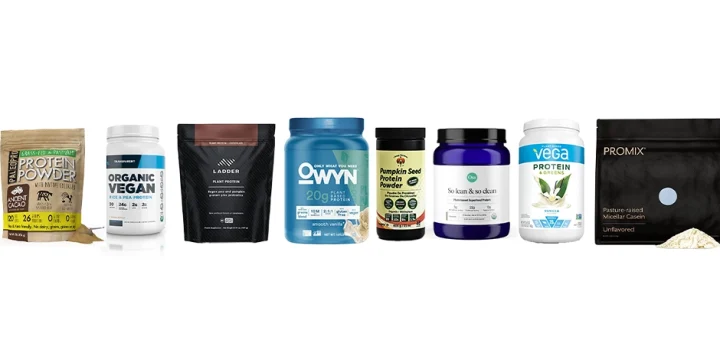I've seen quite a few heated debates at the gym in recent months about the pros and cons of different protein sources. In many cases, it mainly comes down to soy vs. whey protein, but there is often a lot of misunderstanding.
From a nutrition perspective, there are important factors to consider; ones that go beyond the ethics of plant-based protein powder.
If you don't understand the differences in nutritional content, then you could end up making a decision that won't get you to your health and fitness goals.
Let's start with some basics.
Quick Summary
- Whey protein offers a complete amino acid profile and fast absorption, beneficial for muscle recovery, while soy protein is low in saturated fat and high in fiber, aiding digestion and potentially lowering LDL cholesterol.
- To understand the differences between soy and whey protein, it's essential to consider their nutritional content, including amino acid profiles and impact on muscle recovery and building.
- The National Institutes of Health (NIH) reports that soy protein powder, containing 40% protein and rich in iron, is preferred by vegans for nutrition and by non-vegans for its lower fat content, beneficial for heart health.
- Based on my experience, whey protein is generally more effective for muscle building due to its complete amino acid profile, while soy protein is a suitable option for those with dairy intolerance or following a vegan diet.
What Is Whey Protein Powder?
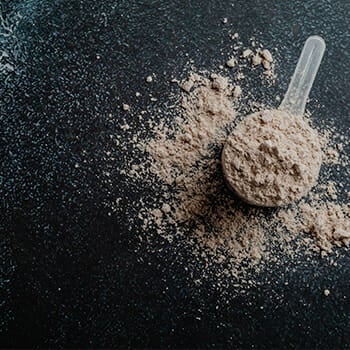
Whey protein powder, primarily an isolate from milk, boosts protein intake. It's the liquid left after removing milk curds, which are used in cheese production.
This whey is processed into a protein isolate, popular for weight loss, athletic performance, and bodybuilding.
Greatist notes that among protein powders in sports nutrition stores, whey tops the list [1].
1. Health Benefits Of Whey Protein Isolate
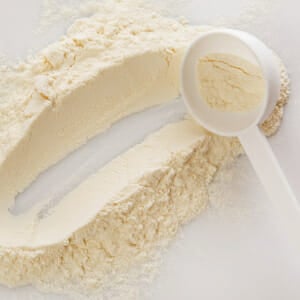
Whey isolate offers key fitness benefits, aligning with many fitness goals.
Research by the National Institute of Health (NIH) reveals it contains all essential amino acids, including the 9 vital ones our bodies get from food [2].
These amino acids are crucial for muscle recovery and growth.
Precision Nutrition's study indicates whey protein is among the fastest for the body to absorb [3]. Thus, for athletes, whey protein rapidly boosts amino acid levels and nourishes muscles.
2. Side Effects Of Whey Protein
The most common side effects of whey protein are down to some form of dairy or lactose intolerance. While whey protein itself is not high in lactose, it may still cause problems when digested.
The other reason I have seen some clients have problems with whey is down to overuse. Yup, I have encountered many people with muscle building and weight loss goals who thought it was a healthy idea to double and triple up on their whey protein intake.
Let me tell you: unless you're a professional athlete and you work with a dietitian, that's not a good idea.
What Is Soy Protein Powder?
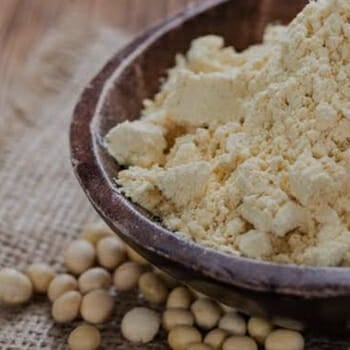
Soy protein powder, isolated from soybeans, is rich in protein, with about 40% content, as noted by NIH [4].
It's a favorite among vegans for its high iron levels, often missing in their diets.
Non-vegans also opt for soy over whey due to its lower saturated fat content, which is better for heart health. Let's dive into the benefits.
1. Health Benefits Of Soy Protein

I've noted soy's low saturated fat content, a stark contrast to whey protein.
Nutritionally, its high fiber content aids digestion and promotes a feeling of fullness.
Intriguingly, NIH research shows that switching from animal to soy protein can lower bad LDL cholesterol levels [5].
Plus, unlike other plant proteins, soy includes all 9 essential amino acids, supporting muscle recovery and bodybuilding.
2. Side Effects Of Soy Protein

The most common reaction that I have seen with my clients is due to soy allergies, which are probably more common than a lot of people expect.
If you rarely have soy products in your diet, then it may be best to start with a small scoop of protein powder to make sure you don't have a reaction.
The Negatives
However, two main negatives are often raised from a nutrition perspective.
Soy protein has quite a high sodium content. According to LiveScience, while many athletes may need this electrolyte to stay hydrated, it may have some negative impacts, especially for your heart health [6].
The other thing you often hear is that soy contains isoflavones, which have similar effects as the estrogen hormone.
However, a study from the Harvard School of Public Health has measured these responses to be very weak, so unless you're planning to take very large doses of soy protein powder, this should not be an issue [7].
Check this video out for a further comparison between the two options:

Comparing Soy and Whey Protein Powder
The main difference between soy and whey protein powder is that whey protein is a dairy product.
Whey powder increases testosterone levels and helps gain muscle faster, while soy protein is better for lowering bad LDL cholesterol levels.
You should have a good picture of the benefits of both forms, so let's take a look at how to make a decision.
1. It’s All About The Amino Acid Profile
According to LiveStrong, while soy does contain all 9 essential amino acids, two of them are present only in minimal amounts: methionine and lysine [8]. This means that if you're looking for muscle-building benefits, whey may be the better option.
"Essential amino acids can help maximize the hard work we put in at the gym to stimulate muscle protein synthesis. If you're stimulating muscle protein synthesis, you put yourself in a favorable position to gain muscle or at least not break down your existing muscle."
- Kris Gethin, Professional Bodybuilder
2. Taste and Texture
I would say that this is not so much an issue if you plan to use flavored soy or whey protein powder. But if you're going for unflavored, then it's important to note that whey is a bit more creamy, and soy has more of a nutty flavor to it.
3. How Long Will It Last?
Both soy and whey protein products usually have a shelf life of about a year. If you take protein supplements daily, then that won't be a concern.
But for less regular users, keep in mind that the flavor may diminish as you approach the best before date.
4. Dietary Restrictions
Your choice of protein source may very much come down to any dietary restrictions you have. For anyone with dairy allergies or if you stick to a vegan diet, soy protein is going to be your answer.
Just keep in mind that from a nutrition perspective, you may need to stack soy with rice or pea protein powder to get full amino acid exposure.
Now it's time to factor in your goals.
Whole Food Sources vs. Soy and Whey
Soy and whey proteins, whether in supplements or whole foods, each offer distinct benefits. Supplements provide a quick, potent protein boost, essential for muscle recovery.
Soy protein, from plants, contains heart and bone-friendly phytoestrogens. Whey, from dairy, is amino acid-rich, promoting muscle growth.
Whole foods add extra nutrients and fiber.
- Soy foods like tofu and edamame deliver vitamins, minerals, and antioxidants.
- Dairy, a source of whey, offers calcium and vital nutrients. Supplements are efficient, but whole foods ensure a balanced, nutrient-rich diet.
The choice between supplements and whole foods hinges on individual health goals and preferences.
Considering Your Personal Goals
So, assuming that you don't have dietary restrictions that impact which source of protein you choose, there are two main factors that you'll likely need to consider.
1. Bodybuilding

To build muscle mass, I often recommend whey protein to clients. Its complete essential amino acid profile greatly supports daily muscle needs.
Having worked with diverse individuals, I've seen whey significantly contribute to achieving ideal body composition.
Remember to monitor intake to limit saturated fat exposure.
2. Weight Loss

I've long recommended soy protein to clients with weight loss goals.
While it lacks the complete amino acid profile of whey, essential for muscle building, it's effective for body composition and fat loss.
Soy's added fiber helps you feel fuller longer, easing meal gaps.
This can aid in managing a calorie-restricted diet, simplifying the journey to your ideal body weight.
Recommended protein powders:
FAQs
Is whey protein better than soy protein?
Yes, whey protein is better than soy protein for muscle building as it contains larger amounts of essential amino acids. However, soy may be the better choice for weight loss as it contains more fiber and less fat.
Does soy protein affect testosterone?
No, soy protein doesn't affect testosterone levels, no matter how many grams you take daily. However, it may have an impact on the release of other hormones, especially estrogen.
Does soy protein isolate increase estrogen?
Yes, soy protein isolate may increase estrogen in your body. However, your soy protein consumption would have to be in excess of 50 grams daily for this to start showing any impact. At average amounts of about 20 grams, you shouldn't expect any significant estrogen changes.
How much soy protein is too much?
Soy protein intake above 50 grams per day may be too much, according to some studies. At this point, you may start increasing estrogen receptor responses, and your sodium intake may be rising too much as well.
Is soy bad for males?
No, soy is not bad for males unless you're relying on excessive amounts. It doesn't have an impact on testosterone levels, but taking more than 50 grams per day, may have an impact on estrogen levels, which could influence your body composition.
References:
- https://greatist.com/fitness/best-protein-powder-for-women
- https://pubmed.ncbi.nlm.nih.gov/23231757/
- https://www.precisionnutrition.com/rr-whey-too-much
- https://www.ncbi.nlm.nih.gov/pmc/articles/PMC5793271/
- https://www.ncbi.nlm.nih.gov/pmc/articles/PMC1595159/
- https://www.livescience.com/36256-salt-bad-health.html
- https://www.hsph.harvard.edu/nutritionsource/soy/
- https://www.livestrong.com/article/352117-amino-acids-in-soy-protein/
About The Author
You May Also Like

